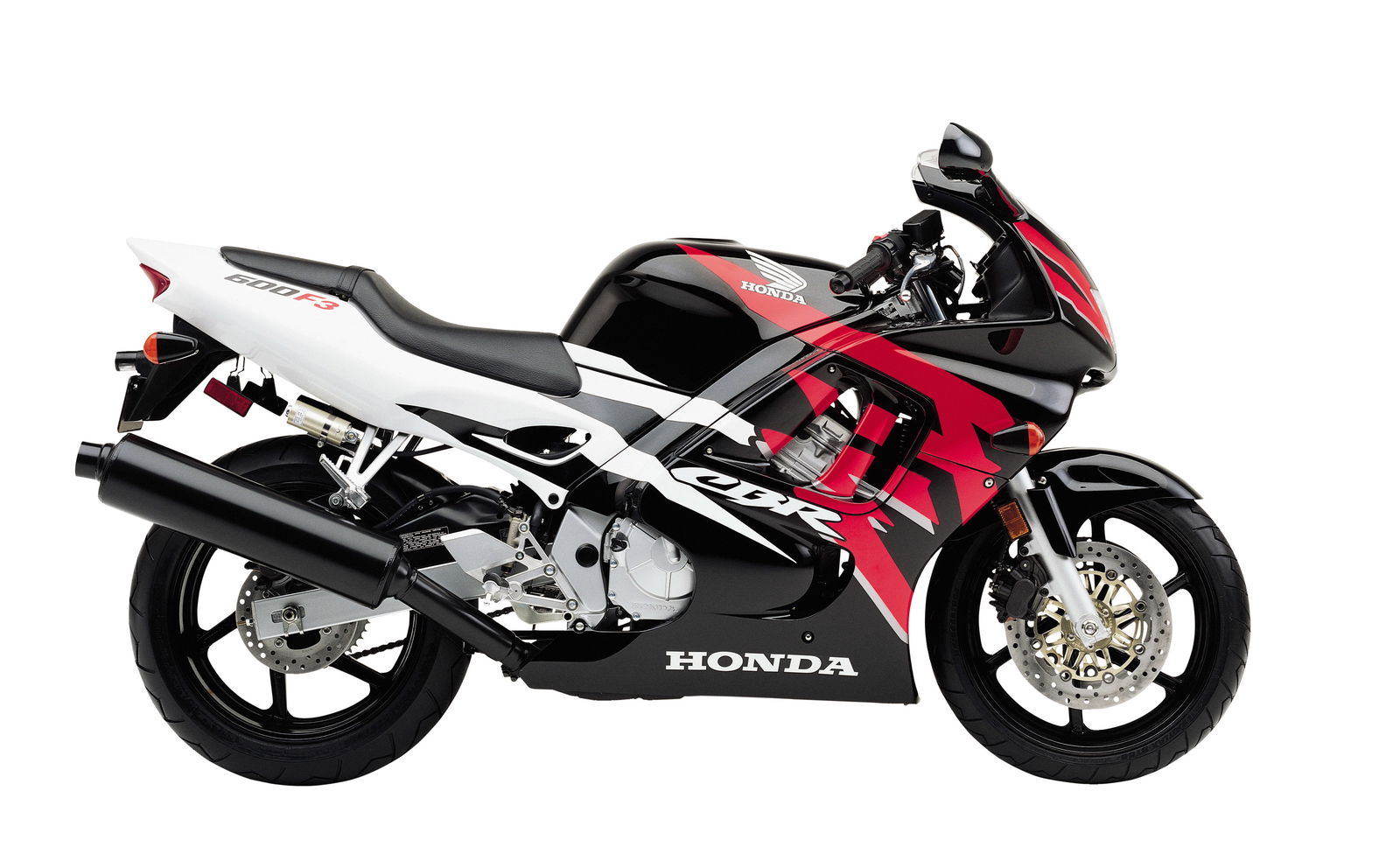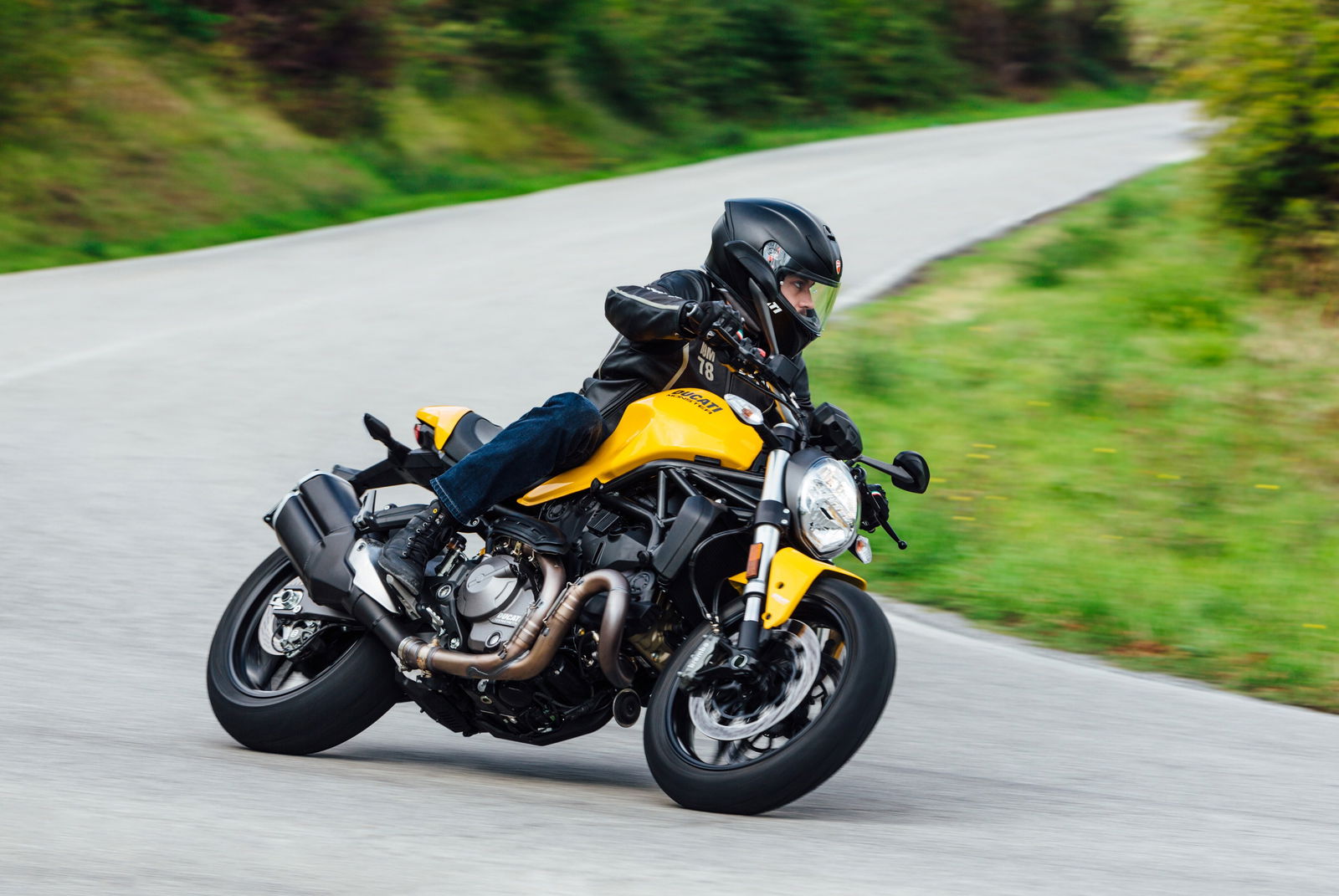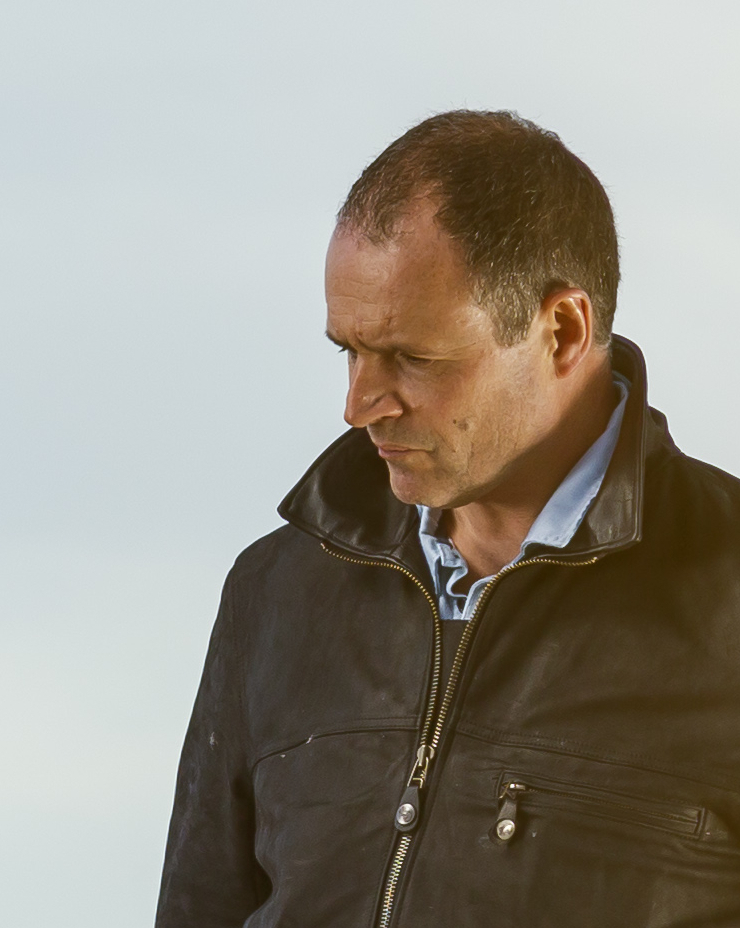Top 10 Best Norton Motorcycles
The new Nortons are coming – but what have they got to live up to?

With Norton back in the news recently when it promised at the Goodwood Festival of Speed the commencement of sales overseas and a range of six new Nortion models over the next three years (although there are so far no indications of what these new bikes may be), it got us wondering – just what have been the best and most iconic Norton motorcycles – ever?
And there are plenty to choose from, too. With the iconic marque being originally founded by James Landsdowne ‘Pa’ Norton in Birmingham way back in 1898, then producing its first motorcycle in 1902, over the years since, many of them tumultuous, there have been more iconic Nortons than you may care to remember.
From the first singles to the pioneering Featherbed and Isolastic twins of the ‘60s, and from the dominant Manx racer to the record-breaking White Charger, all the way up to today’s 961 and V4SV, there have been brilliant Nortons of all types.
But which have been the most iconic – here’s our pick of the best, in chronological order…
1926-1964 Norton ES2
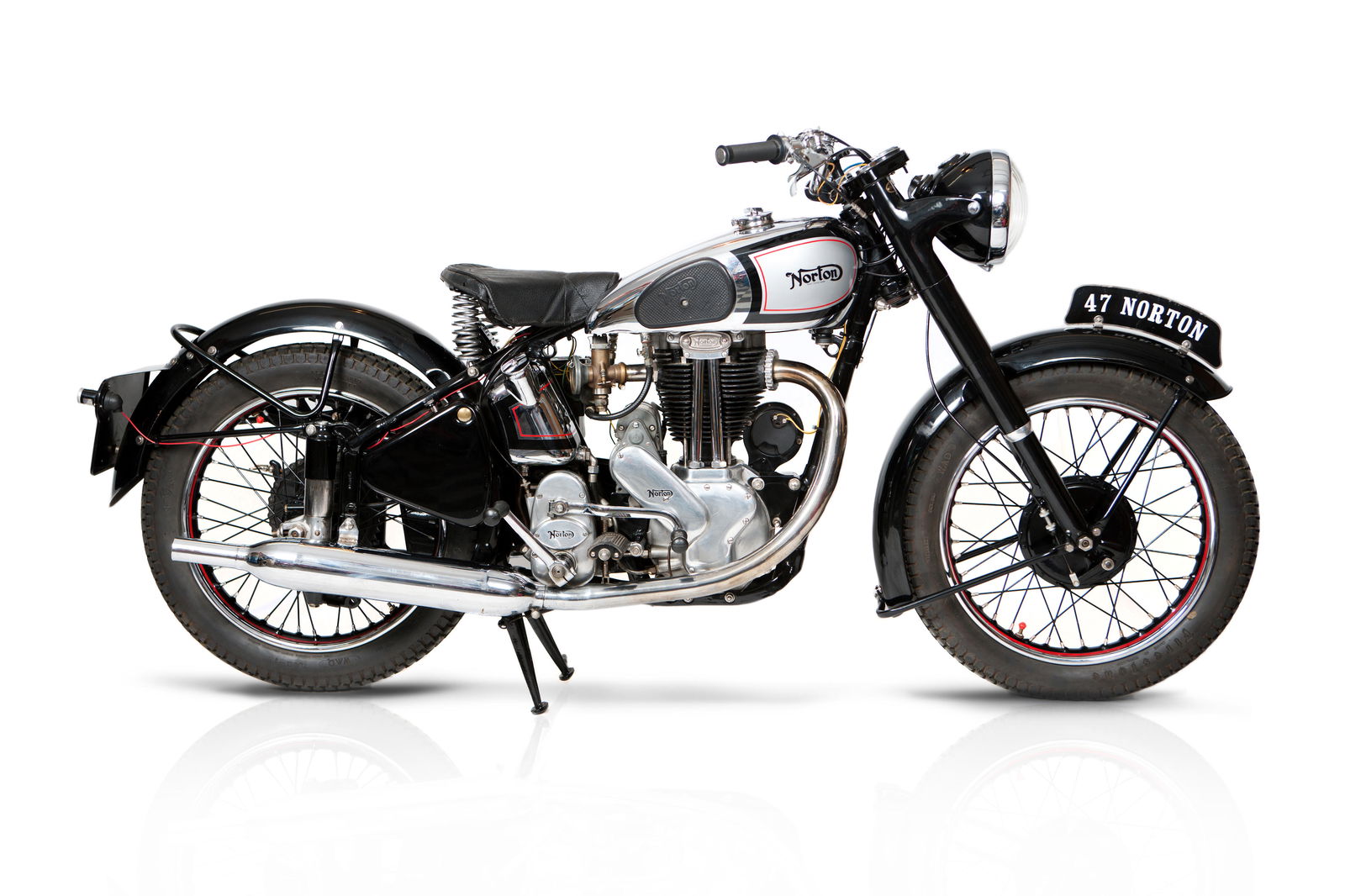
Although Norton would later become synonymous with parallel twins, like many it started out with four-stroke singles, its longest produced being the 490cc ES2. The overhead valve design debuted in 1926 and remained the backbone of Norton’s range right through to 1964, always with the same engine but with frames that evolved from rigid to plunger to swinging arm rear suspension to using forks and finally adopting the famous Featherbed twin loop design in both wide and slimline forms.
1950-1962 Manx Norton
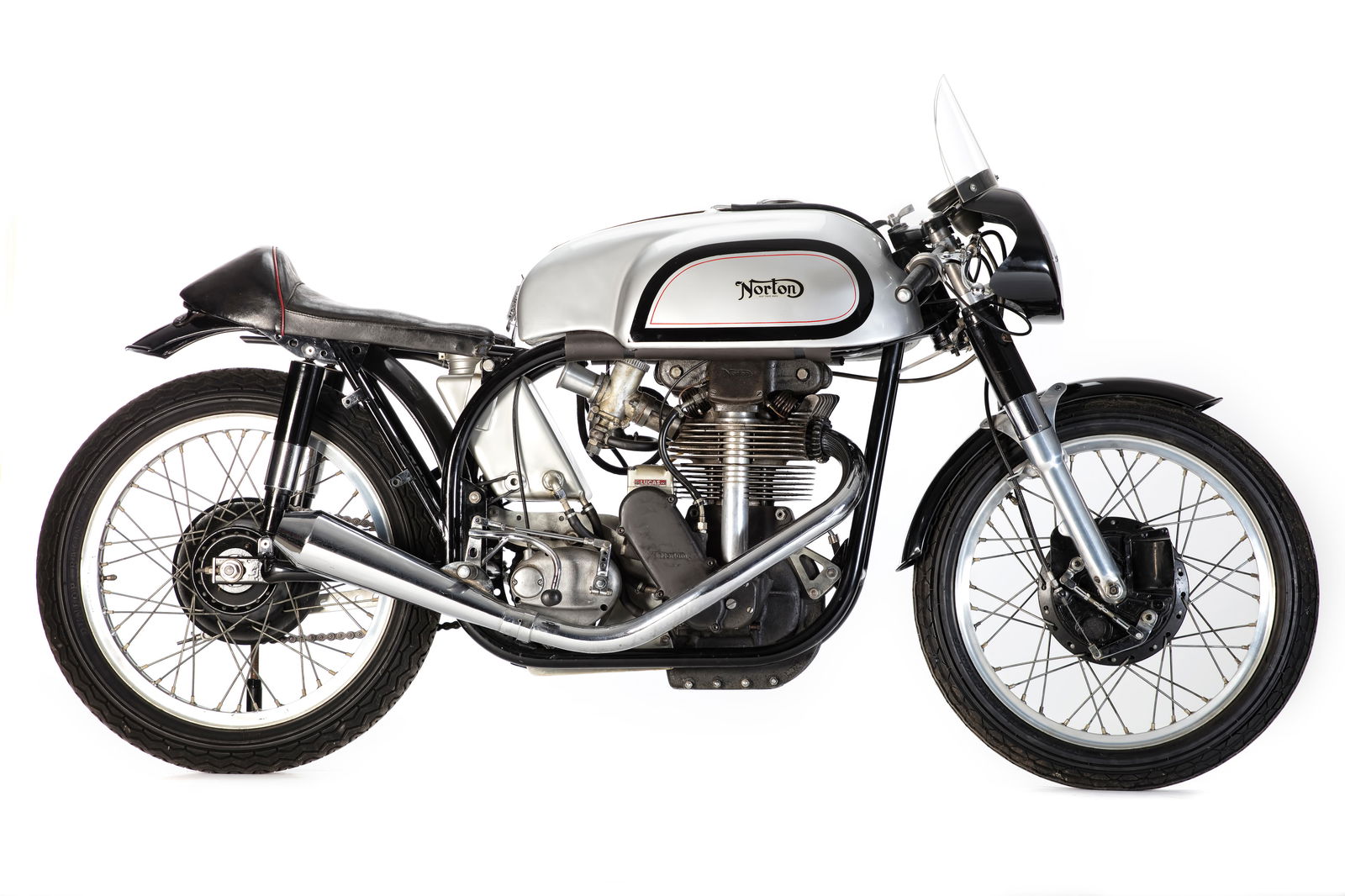
After winning the first Isle of Man TT in 1907, Norton went on to further Snaefell Mountain success in the 1920s, mostly with its 500cc Model 18. The first use of the ‘Manx’ name on its production racing machines came with the Manx Grand Prix model from 1936-1940, a special racing version of its international roadster with telescopic forks, plunger rear suspension and magnesium crankcases and cambox.
After WWII, from 1947, the 'Grand Prix' was dropped, and Norton named its racing model the 'Manx'. Again, it was a production racer version of the overhead cam, single-cylinder International available as a 350cc or 500cc. From 1950 this was fitted with the pioneering ‘Featherbed’ frame ensuring it became the privateer production racer of choice. Production ended in 1962, but Manxs remained popular racing for years to come and today is dominant on the classic scene with newly built bikes still available from specialist makers.
1952-1966 Norton Dominator 88
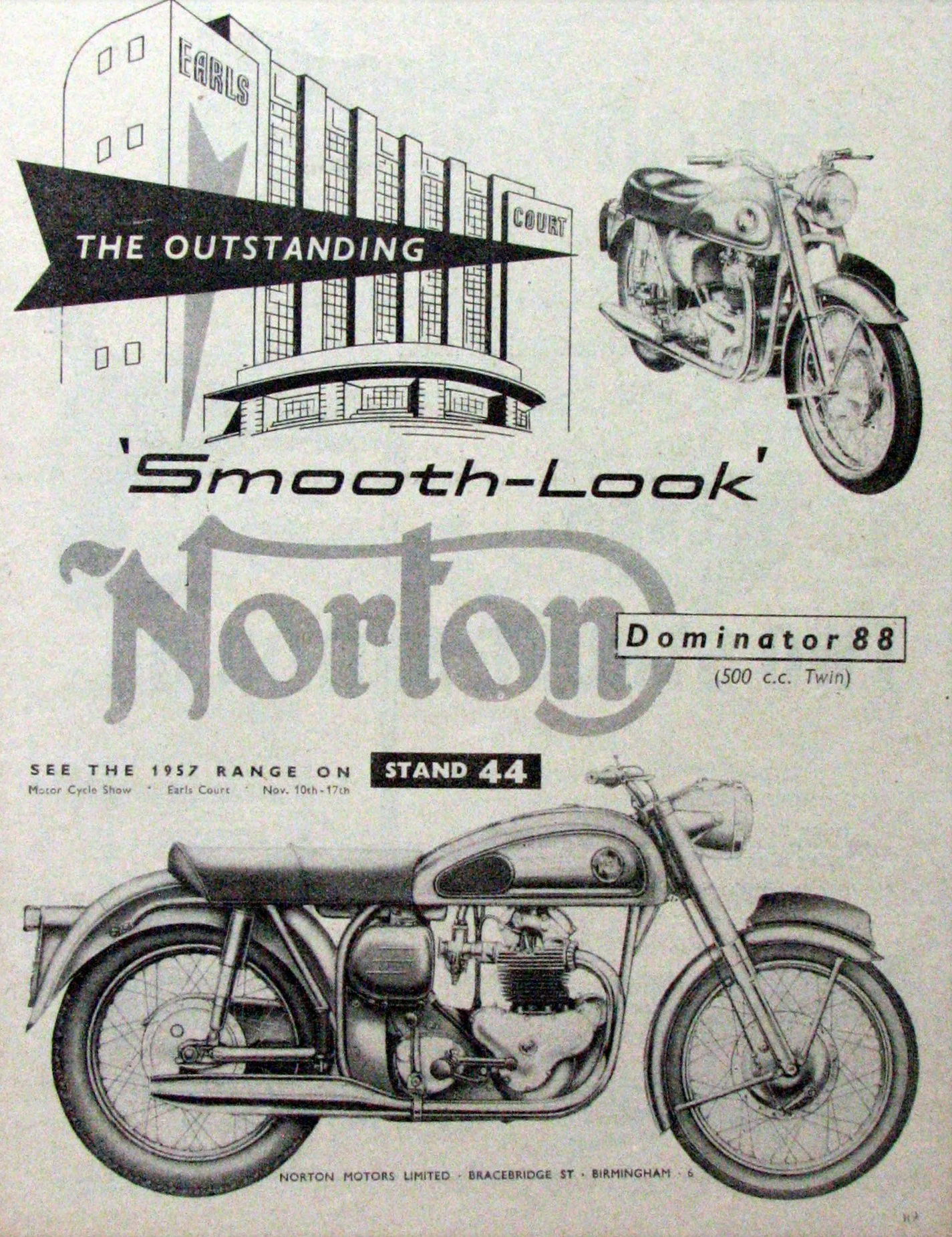
The original Dominator was Norton’s first parallel twin, a 497cc machine launched in 1949 to compete with Triumph’s game-changing 1936 Speed Twin. This then was significantly improved with the adoption of the Featherbed frame from 1952 to become known first as the Dominator De Luxe, then the Dominator 88. A fine-performing, well-handling machine, the Dominator 88 was Norton’s flagship model of the 1950s and early 1960s until effectively superseded by the 750cc Atlas from 1962.
1962-1968 Norton Atlas
After rivals Triumph, BSA, Ariel, and Matchless began enlarging their parallel twin engines from 500cc to 650cc in the late 1950s, Norton leapt ahead with its first 750, the Atlas. In essence, it was a Dominator 500 which had already grown to 600 then 650cc, and now to 750cc. It was a powerful, too, producing 55bhp while its now ‘slimline’ Featherbed frame gave excellent handling.
On the downside, it was expensive compared to its main rivals (smaller Norton hadn’t the economies of scale of the larger Triumph/BSA) and was also prone to excessive vibration which would lead to the rubber mounting solution of the later Commando models. But it was still one of the most enviable bikes of its day.
1967-1977 Norton Commando 750/850
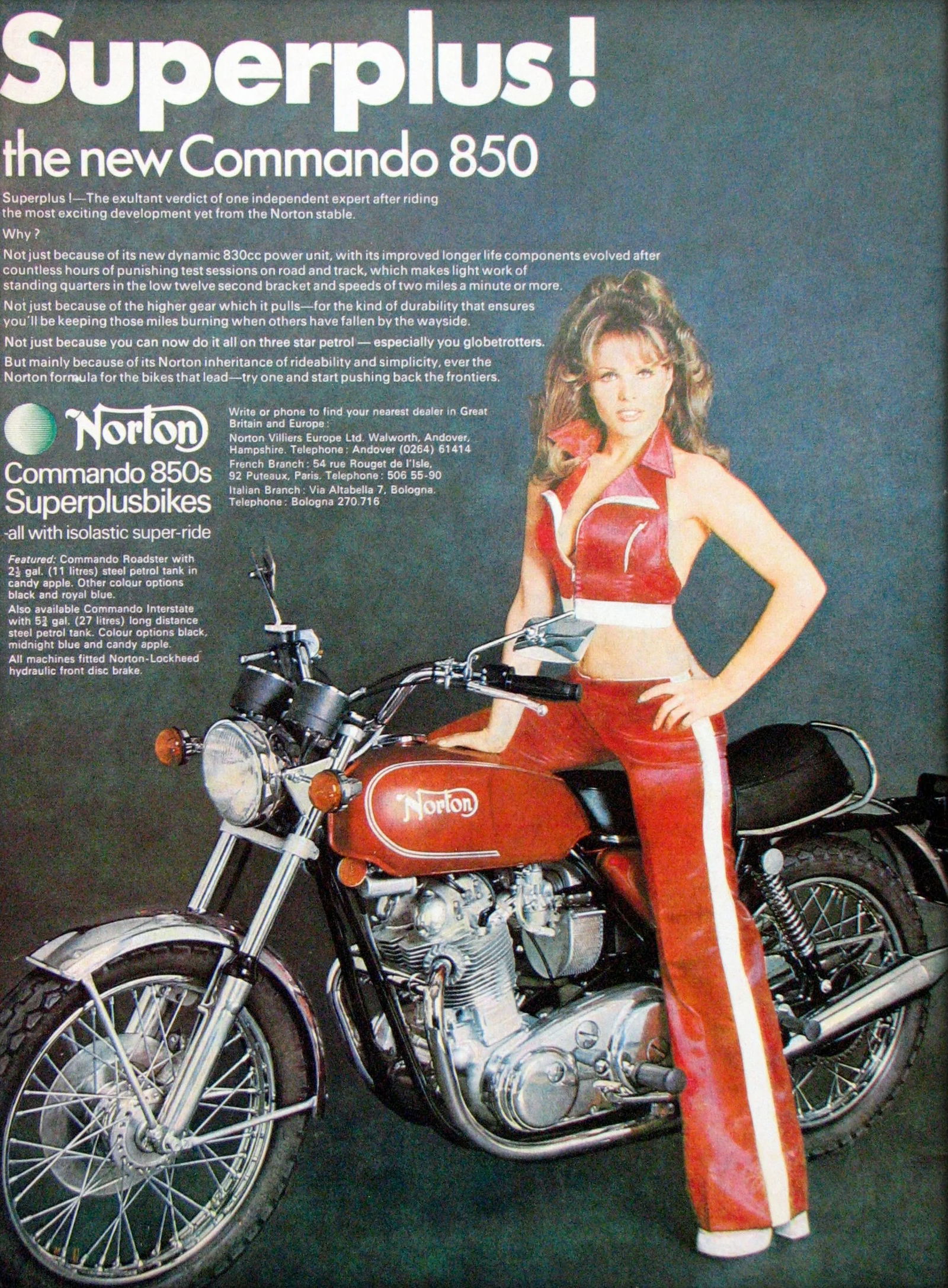
Launched as Norton’s new flagship after the company’s change into Norton Villiers, the Commando was essentially an upgrade on the preceding Atlas by virtue of a new vibration absorption system called ‘Isolastic’ whereby the engine, gearbox and swinging arm were all rubber. On top of that, the engine’s cylinders were canted forward to give a new, sportier look.
First produced as a 750, it later grew to 850cc, gained an electric starter, was famously part of the ‘Norton girls’ advertising campaign and was voted ‘Machine of the Year’ in the UK for six years on the trot.
1972-1974 John Player Norton racer
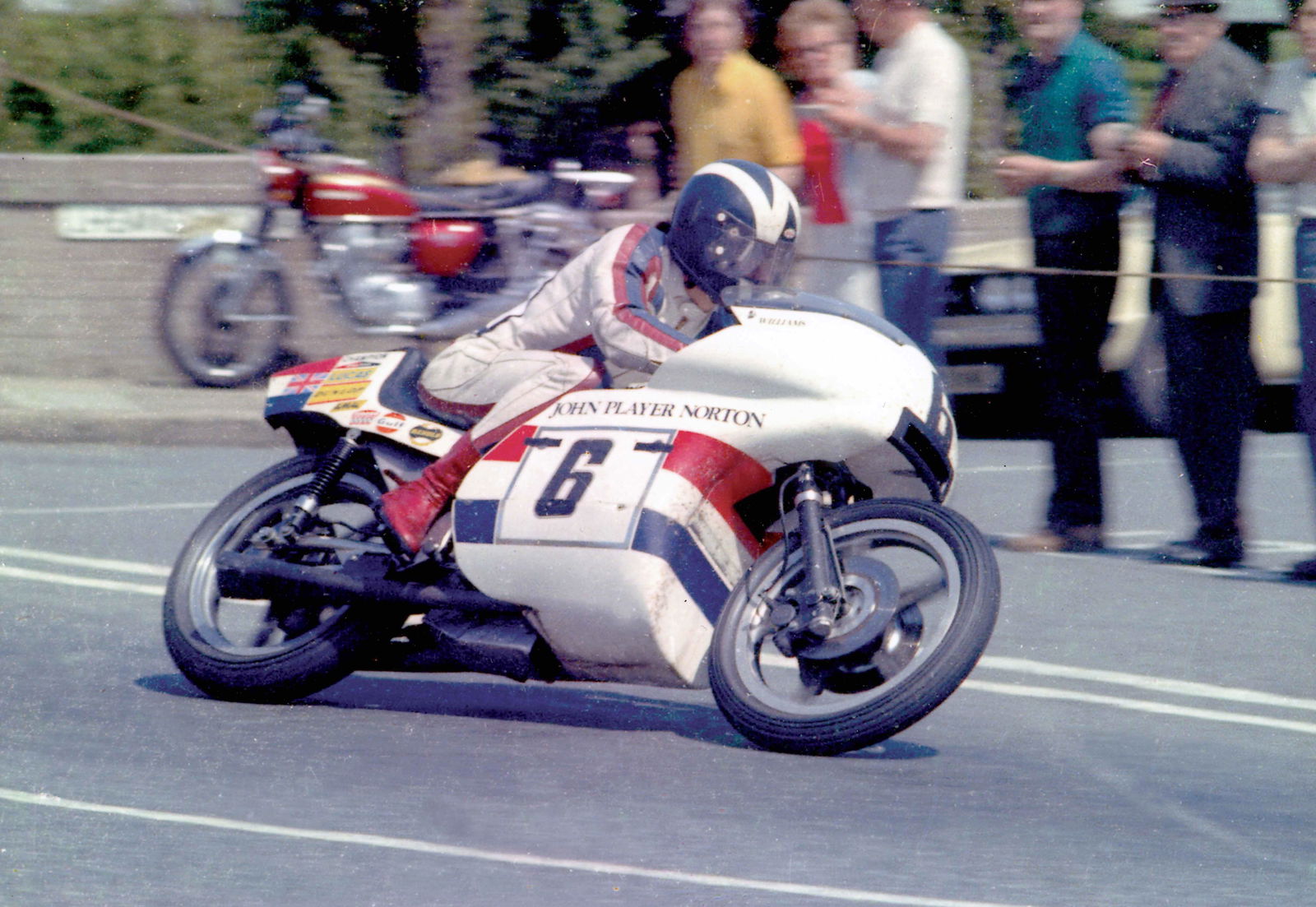
From 1972 to 1974 tobacco giant John Player sponsored Norton’s new Formula One racing team and, with the Commando engine outpaced, rider/designer Peter Williams turned to radical chassis design, the highlight being the sheet metal monocoque-framed 1973 machine, which won that year’s F750 TT in the hands of Williams, although the following year’s tubular steel space frame design was almost as pioneering.
Both also sported distinctive bodywork including hand bubbles and a one-piece seat-tank unit, unmissable white/red/blue John Player livery, and other novelties such as mini disc brakes. A tribute road bike, the Norton Commando John Player Special, in similar bodywork went on sale in 1974 but after the sponsorship deal ended after three years, the project was disbanded.
1988-1994 Norton RC/W588
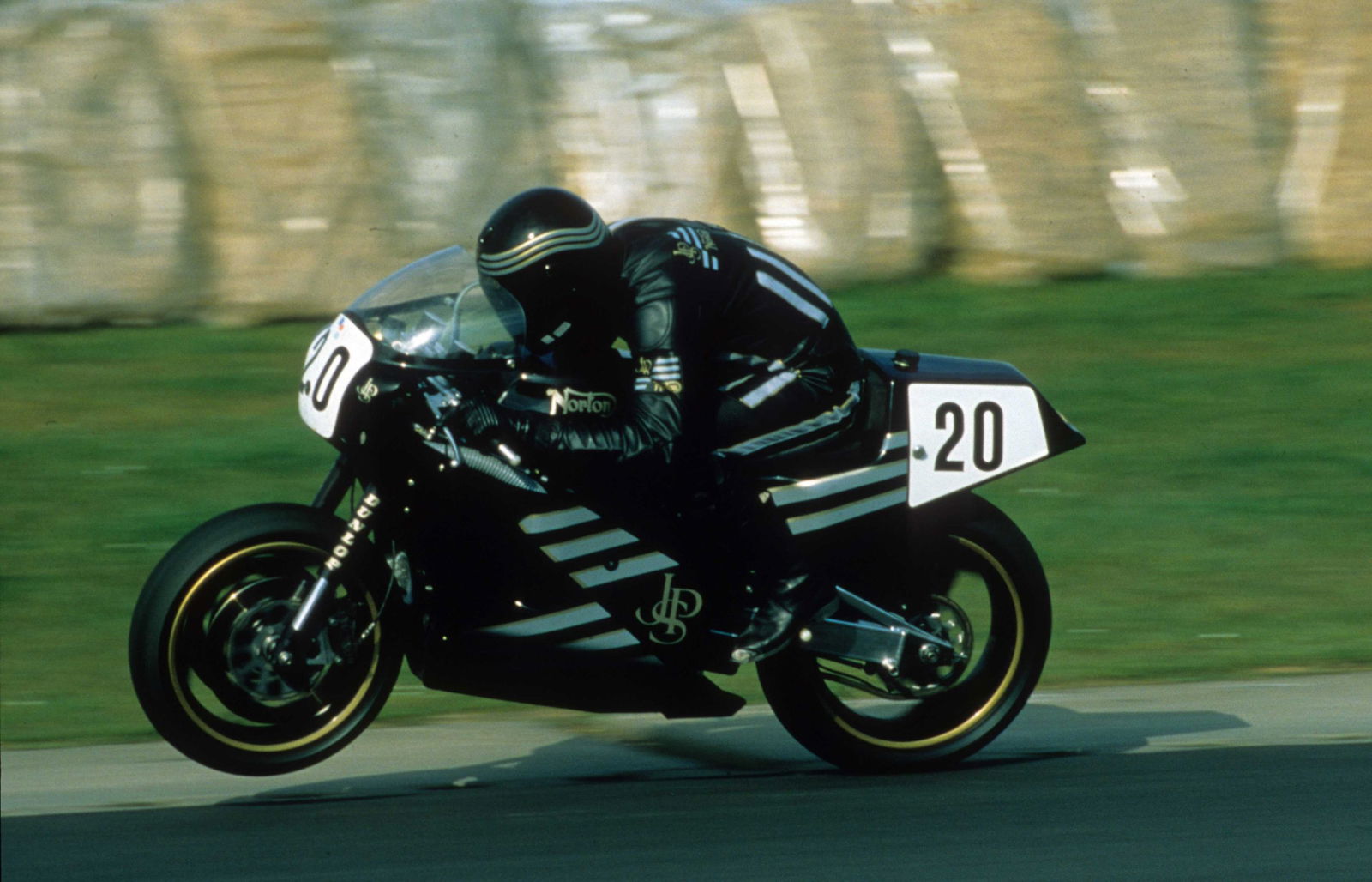
After the demise of Norton volume production in 1977, the Norton concern struggled on in a much smaller form to explore rotary-engined motorcycles, partly for the police. In 1987 employee Brian Crichton developed one of these as a racer then, showing promise, attracted John Player Special sponsorship and would achieve major success in British racing with the likes of Trevor Nation and Steve Spray. It’s most famous success, however, came with the later water-cooled RCW version in 1992 when Steve Hislop won the 1992 Senior TT, Norton’s first success in the class since 1961.
1990-1991 Norton F1
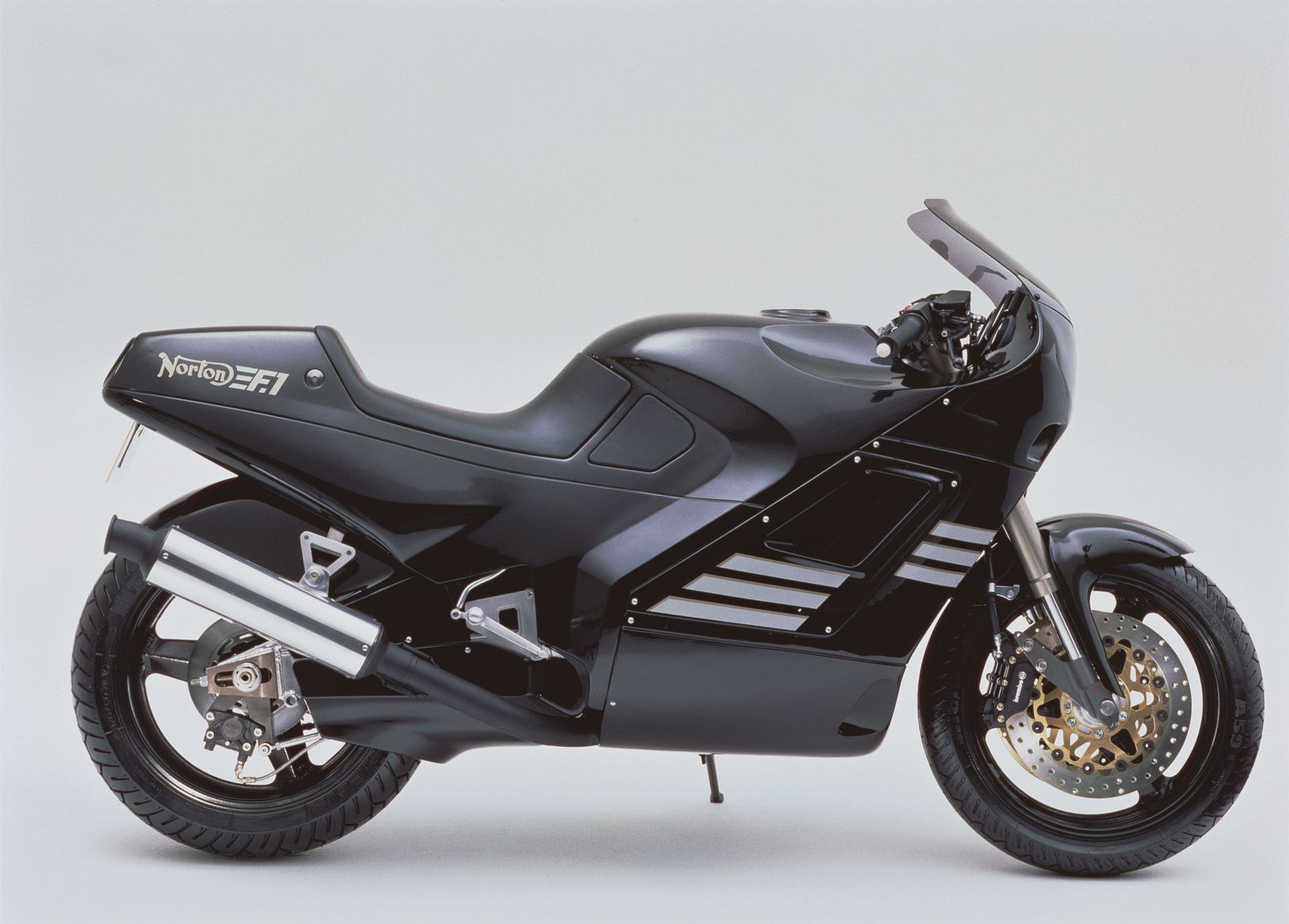
Buoyed by the racing success of the then RC588, Norton produced a limited run of tribute road versions using Spondon frames, Seymour-Powell designed all-enclosing bodywork, WP suspension and fairly standard 95bhp engines. Although reasonably fast and fine handling, they were no quicker than a contemporary CBR600F, but cost, at £13,000, nearly three times as much.
2010-present Norton Commando 961
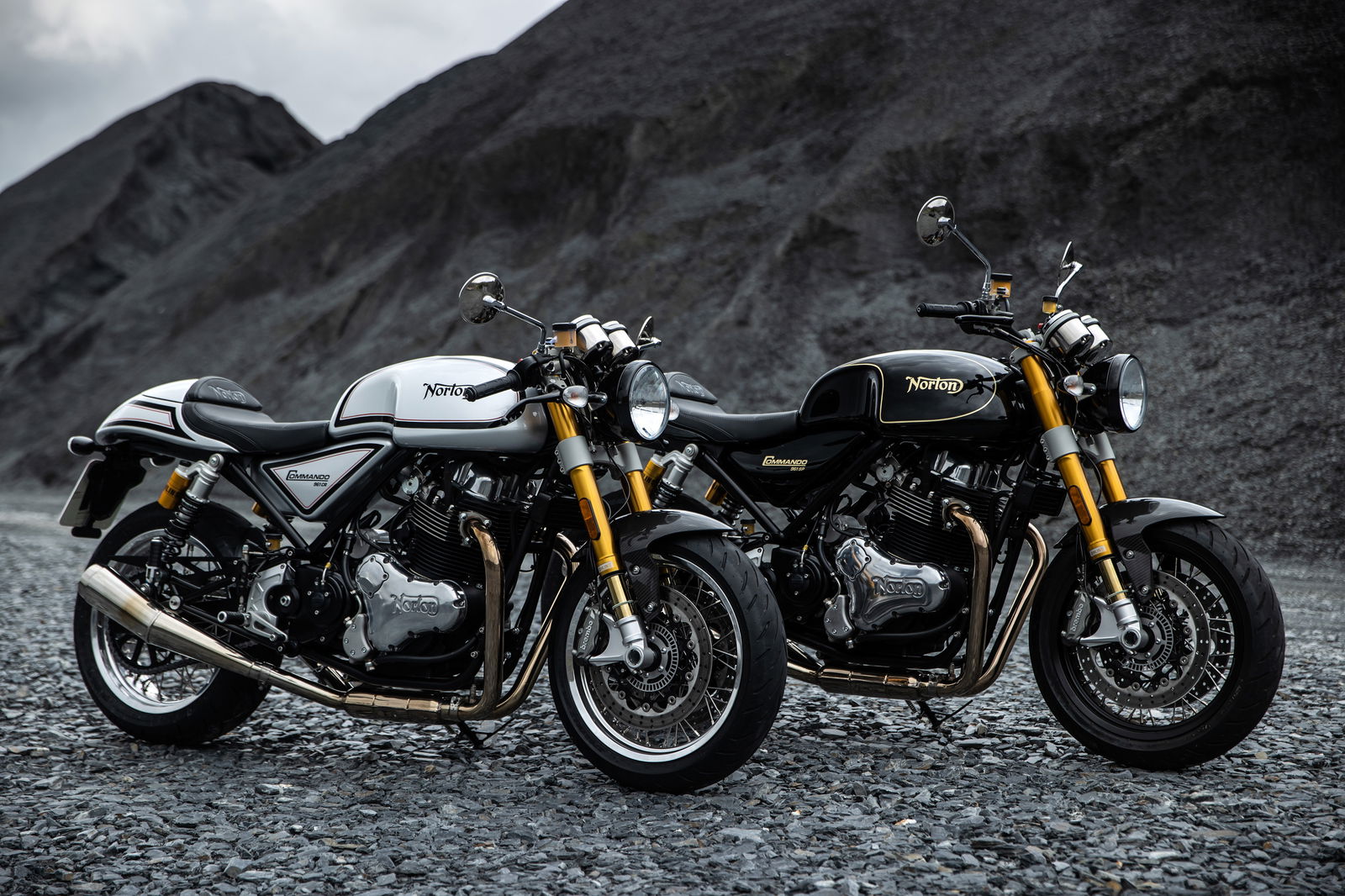
After 15 years of contentious ownership, the Norton name and manufacturing rights were bought by Brit Stuart Garner in 2008 along with designs for a new air-cooled 961cc Commando which had been part-developed by the previous owner, American Kenny Dreer.
Garner and a small team as his base at Donington Park continued development and put the machine into limited production in 2010 which was then spun off into various models including a café racer and monoshocked Dominator. However, although the styling, components and build quality were good, performance and refinement were crude, and Norton soon struggled financially.
2017-present Norton V4
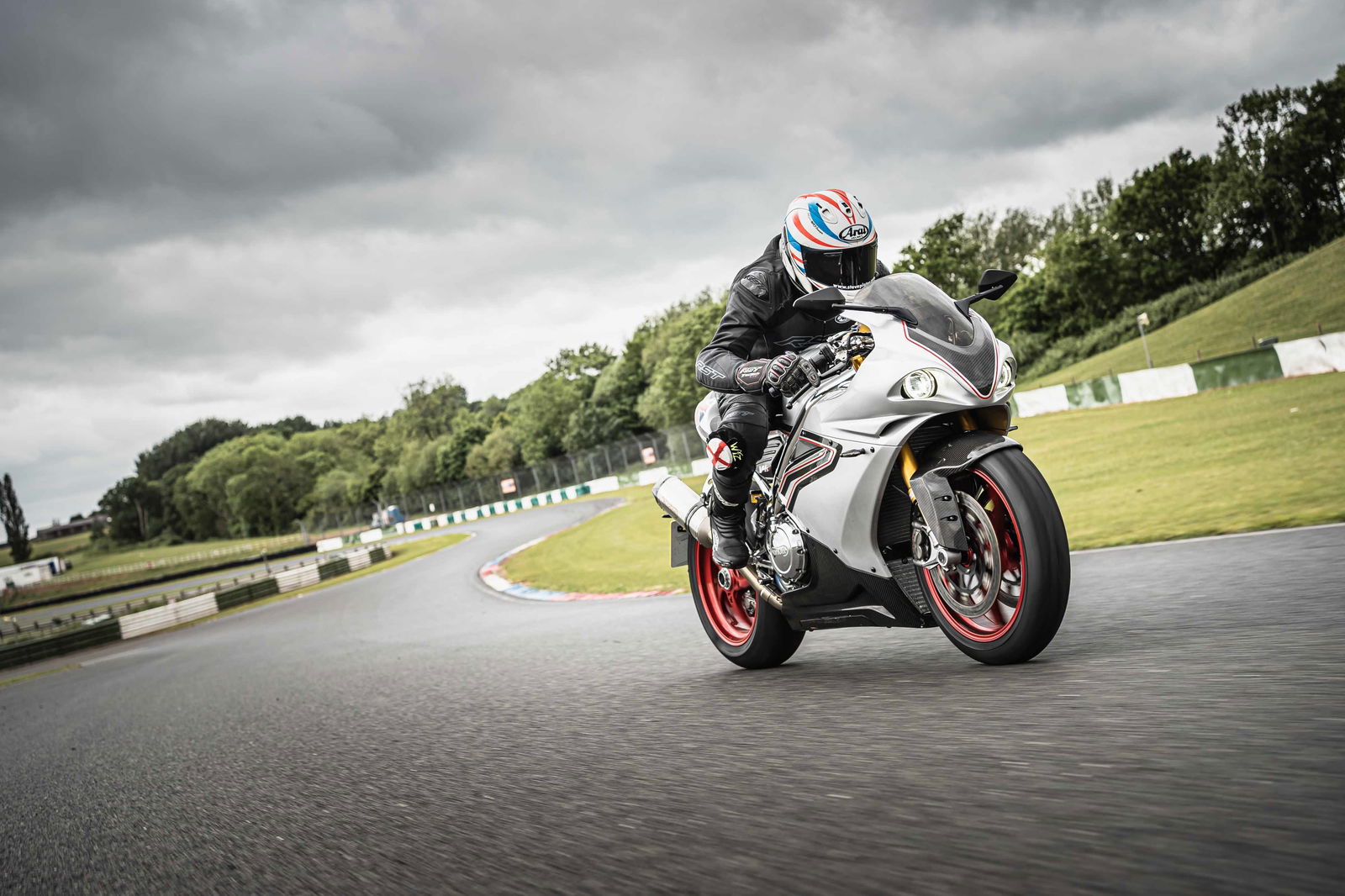
Garner-era Norton’s most ambitious machine was the V4 superbike, inspired by its racing attempts at the TT and powered by a 1200cc modified version of Aprilia’s V4. It was an ambition too far. Although a (rough) prototype was built, customer bikes were limited, Norton fell into administration in 2020 and financial scandals involving pension fraud and more emerged.
Indian giant TVS then bought Norton, established an all-new, multi-million-pound facility in Solihull and impressively fully re-engineered the 961 and V4 to be the bikes they always should have been and satisfy customer obligations, but both are more decent rather than outstanding performers.
